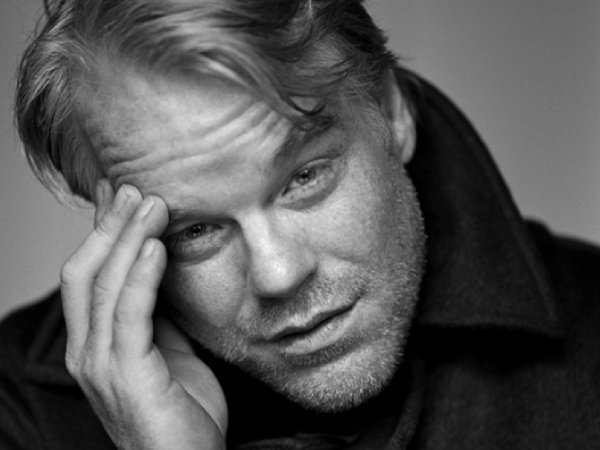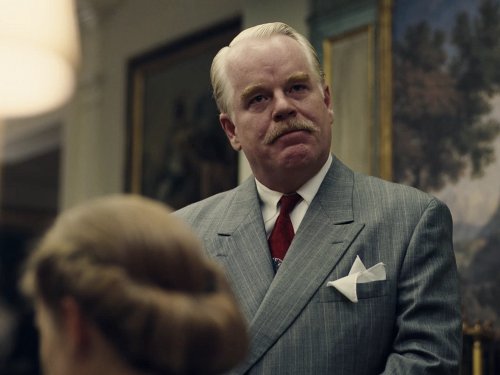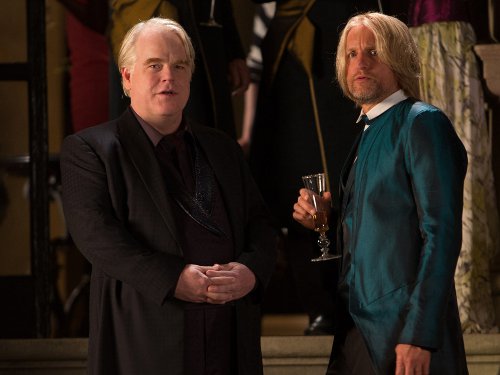
Philip Seymour Hoffman. 1967 - 2014. |
Born in Fairport, New York on 23 July 1967, it was by accident that Philip Seymour Hoffman picked up acting when he suffered a neck injury while he was a wrestler in high school. Ever since then, Hoffman has never gone back to the ring, but stayed on his new found stage where he would graduate from the Tisch School of Arts of New York University in 1989.
Aside from his achievements in theater and television in his 25 year career, Hoffman's accomplishments as an actor on film has been defined by being able to take on challenging roles with nuanced idiosyncrasies. His intense swing of emotions from disarming mildness to commanding outburst, often in a flash of brilliance projected from his stocky frame, has made him a sought after contributor for masterful directors like Sidney Lumet, Bennett Miller, Charlie Kaufmann, Spike Lee, the Coen Brothers, and Paul Thomas Anderson.
But every bright talent will always have its dark side and for Hoffman it has always been his addiction to drugs. Despite having gone through rehabilitation at the age of 22, Hoffman's life would be tragically cut short by substance abuse that he had abstained from for more than 20 years.
Attempting to narrow down the best performances of Hoffman's filmography is an exercise as cruel as his fate, but here we can only afford to pin down ten of his memorable performances to make us realise what a great talent we have lost.
Boogie Nights (1997)
In Paul Thomas Anderson's 1997 "Boggie Nights", Hoffman plays as boom operator Scotty, who has an unrequited fascination towards male porn star Dirk Diggler (played by Mark Wahlberg), and tries to win his affection during a New Year's Eve party.
Hoffman makes one of his earliest displays of his trademark emotional control in that single scene when he forcefully conveys his love towards Diggler, and the resulting regret upon being rejected is so heartbreaking that we want to do more than sympathise with his realisation of his insignificance to find love in a cold love-making industry.
"Boggie Nights" was one of the earliest collaborations that Hoffman has with Paul Thomas Anderson, and Hoffman would continue working closely with the director for many of his works including "Magnolia" and "Punch Drunk Love".
Flawless (1999)
In this written and directed feature by Joel Schumacher, Hoffman plays as Rusty; a drag queen who lives in the same apartment building with police officer Walter Koontz (Robert De Niro), who comes seeking Rusty's help to overcome his speech impediment after suffering from a stroke.
Although Hoffman fully embraces the feminine side of his character, he never loses his commanding presence when exchanging profanities with De Niro, or in that scene when he tells suited gay Republicans to f**k off.
Magnolia (1999)
Shortly after "Boogie Nights", Hoffman returned to make his third collaboration with Paul Thomas Anderson as nurse Phil Parma in the highly weaved "Magnolia", who is tasked to take care of a dying producer (Jason Roberts, in his last appearance) to find his estranged son (Tom Cruise).
While the role is not a complicated character, it was the best showcase of Hoffman's ability to bring up raw emotions from desperation to compassion, all within that single take of him making a phone call.
Love Liza (2002)
When Wilson Joel (Philip Seymour Hoffman)'s wife inexplicably commits suicide, he finds a sealed letter from her. In exasperation of its contents, Wilson turns towards his addiction for petrol fumes; unable to overcome his fears but leads towards finding that life goes on.
Written by Hoffman's own brother, "Love Liza" was where Hoffman finds his first lead role. Although this Sundance indie was rarely seen, it had proven that Hoffman was long prepared to carry the weight of having his own film.
Capote (2005)
In "Capote", Hoffman plays as American writer Truman Capote during his days of documenting the Clutter murders in Kansas, that will lead to his writing of the book 'In Cold Blood'.
Biopics work if an actor bears enough resemblance to whoever the actor is portraying, but Hoffman doesn't only resemble his subject on the superficial level, but digs deeper into understanding the psyche of Capote as though he had always been speaking with that high pitched lisp and charming wit.
His performance in "Capote" had come a long way to give Hoffman the recognition he deserved as an actor, winning him a Golden Globe and his only Oscar for Best Actor, among many other accolades that he received in 2005.
Mission Impossible III (2006)
Never been the kind of actor you would see in a mass appealing blockbuster, doesn't mean that Hoffman shies away from them. As villain Owen Davian in J.J. Abram's "Mission: Impossible 3", Hoffman injects some serious fear into his character with a volatile and violent temperament that makes Davian, arguably, the most terrifying villain in the franchise, to date.
Charlie Wilson's War (2007)
Based on a book about US Congressman Charlie Wilson's clandestine efforts in securing support for the Afghan mujahideen against then Soviet intrusion, Hoffman plays as CIA agent Gust Avrakotos, who channels the funds collected by Wilson (Tom Hanks) to turn the tide of war against the Soviets by arming the outgunned Afghan resistance.
Hoffman's turn as Avrakotos highlights one of the overlooked traits of his in that he is an actor that becomes easily unrecognisable with just a few amendments done to his features. But the moment when he makes his case of why he deserves to be a station chief for 24 years of service, it is unmistakably clear why Hoffman deserve an Oscar nomination for his versatility.
Doubt (2008)
Adapted from John Patrick Shanley's Pulitzer Prize stage play, "Doubt" is set in a Catholic school in the 1960s when a priest Father Brendan Flynn (Philip Seymour Hoffman) is suspected of having an inappropriate relationship with a boy by the headmistress of the school, played by Meryl Streep.
Very often Hoffman has been in instances where his acting prowess outshines brightly from his co-stars, but when he shares a scene with the pedigree from the likes of Meryl Streep, it turns any moment undoubtedly one of the few most compelling ones ever seen on film with Oscar nominations to go around.
The Master (2012)
 |
In his fifth and latest outing with Paul Thomas Anderson, Anderson fulfills one of his desires to cast Hoffman in a major lead role in his films, and had planned to have Hoffman as "The Master" from the start. Hoffman plays as Lancaster Dodd, the founder of a quasi-religious movement shortly after World War II when he accepts a new follower in a drifting ex-Navy sailor, Freddie Quell (Joaquin Phoenix).
Arguably this is the best performance of Hoffman's career. Not only is this where Hoffman has the most screen time apart from "Capote", but in contrast to the chaotic mindset of Phoenix's character, Hoffman shows the finest quality of his acting ability; control.
Dudd is an intellectual and emotional complexity in of himself, in his twisted understanding of the universe and his uncanny ability to draw faithful followers to his cause. This is delivered masterfully by Hoffman's combination of charisma and control (especially in that scene when he defends his cause to a skeptic) that shows what he does best of keeping a lid on intense emotions and erupting in a show-stopping outburst within a single moment. This would garner him his last Oscar nomination.
The Hunger Games: Catching Fire (2013)
 |
In some ways, there is an irony that Hoffman's last role would be as Gamemaker Plutarch Heavensbee; a role for a blockbuster fare where he has rarely made an appearance in. Though he seems to have not a very significant part to play in "The Hunger Games: Catching Fire", it is a role that none the less would gain more significance in upcoming the two-part finale, which he was still filming the second part before his passing.
However, perhaps as Heavensbee, it would launch Hoffman's name to be fully recognised in the mainstream consciousness, and hopefully many more will go back to look for his powerful performances to preserve his memory.
2014 was going to be another great year for Hoffman, having two of his appearances premiered at the recently concluded Sundance, and had recently secured Jake Gyllenhaal and Amy Adams to be his lead for his second directorial. His death that came at such a time is surely a shock that many may still have not allowed to sink in, while his absence would surely be felt in many more years to come.
Cinema Online, 05 February 2014